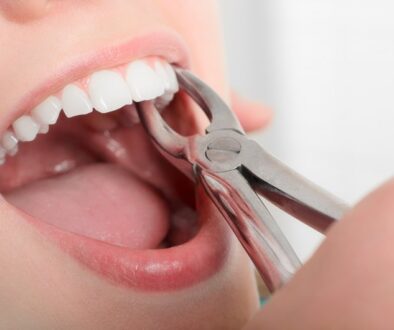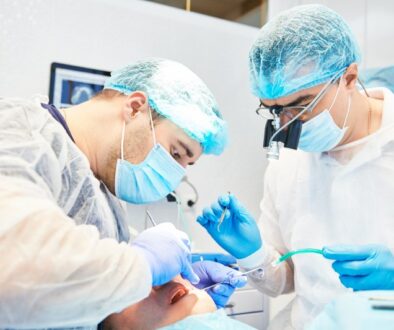3 REASONS WISDOM TEETH NEED TO BE REMOVED
When young children learn about oral health, they are often taught that each tooth has a specific purpose. For example, front teeth help tear food into pieces, while molars grind food into small bits. However, according to research published in the U.S. National Library of Medicine, approximately 10 million wisdom teeth are removed each year in the United States. If every tooth is important, why are millions of wisdom teeth removed on an annual basis? Keep reading to discover 3 compelling reasons for wisdom tooth removal in Denver.
What Are Wisdom Teeth?
Wisdom teeth, also known as third molars, are teeth that grow at the back of the gums. Most people have four wisdom teeth, one in each corner of their mouth. While most permanent teeth grow in when you are young, wisdom teeth typically erupt during the late teenage years or early twenties.
Why Wisdom Teeth Must Be Removed
Impacted wisdom teeth are third molars that don’t have enough room to grow in or develop normally. These teeth remain stuck under the gum line or erupt at odd angles, which can lead to oral health problems. Here are three common reasons wisdom teeth must be removed.
Infection
When wisdom teeth don’t have enough room to fully erupt, the surrounding gum tissue can become irritated and infected. This type of localized gum infection, known as pericoronitis, can result in persistent pain, swelling, and problems with chewing and/or swallowing.
Cyst formation
Dentigerous cysts are small fluid-filled sacks that can develop in the gums as a result of impacted wisdom teeth. If a cyst is allowed to grow, it can cause serious damage to nearby tooth roots and even destroy the bone that supports your teeth.
Damage to adjacent teeth
Wisdom teeth can cause crowding and make it difficult to thoroughly clean your second molars. As a result, teeth adjacent to wisdom teeth may be adversely affected by gum disease, tooth decay, and bone loss.
Do Wisdom Teeth Always Need to Be Removed?
No, not all wisdom teeth need to be removed. If your third molars erupt in an upright and functional position and do not cause any pain, oral surgery in Denver may not be necessary. However, even if your wisdom teeth are not causing you discomfort now, that could change in the future. If you are between the ages of 16 and 19, the American Dental Association recommends scheduling a wisdom teeth evaluation. It’s better to check with your dentist or oral surgeon now, while your tooth roots are less developed, than waiting until you are older.
You can potentially save yourself from future dental pain and other complications by scheduling a wisdom tooth consultation this summer.
About the Author
Dr. Brian Fangman excels at extracting wisdom teeth in a precise and comfortable fashion. He has completed advanced training in oral surgery and leads the expert team at Altitude Oral Maxillofacial Implant Center, which has five convenient locations. To learn more about wisdom tooth removal in Denver, call 720-575-2734.




